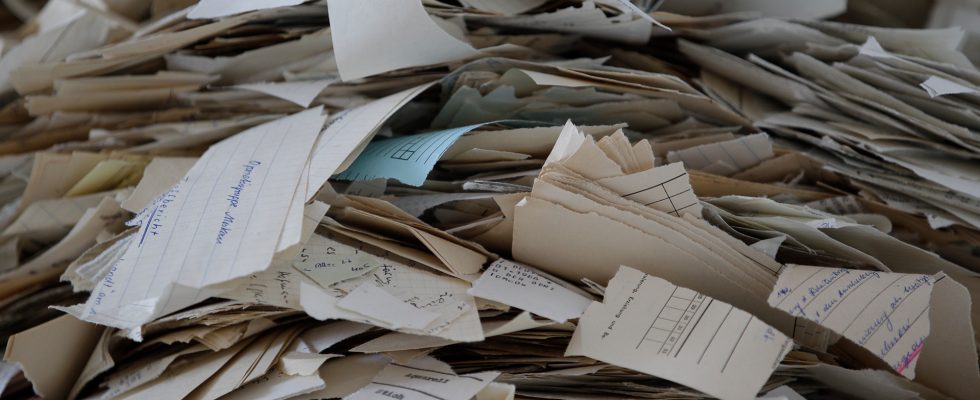Status: 04/21/2023 3:34 p.m
A devastating verdict by the Federal Court of Auditors: The 17 million euro project to digitally reassemble torn Stasi files had failed. Only 0.1 percent of the inventory could have been reconstructed.
According to the Federal Audit Office, the attempt to digitally reassemble torn Stasi documents has “completely failed”. According to one, 28 years after the start of the reconstruction, only 3.2 percent of the scraps of paper have been put back together report. Only 0.1 percent of the total inventory has been digitally reconstructed. The 17 million euro project was therefore unsuccessful.
15,000 sacks of scraps secured
During the peaceful revolution in the GDR in 1989 and 1990, employees of the Ministry for State Security tried on a large scale to destroy secret service files. Documents were shredded, burned or mixed with water. Many documents were torn up by hand and stuffed into sacks for further destruction.
Around 15,500 sacks of snippets were later secured – in the hope of reassembling the historically important documents. It is assumed that it contains important information on Stasi surveillance from 40 years of GDR history.
Technical hurdles with the “e-puzzler”
Since 2007, the Fraunhofer Institute for Production Systems and Design Technology (IPK) has been examining how the reconstruction could be accomplished with the help of computer technology. In a test, snippets from 400 sacks were to be made virtually readable again. Although the software developed for this, the “e-puzzler”, basically worked according to the institute, it did not prove to be suitable for the masses. There were so many technical hurdles that initially only 23 bags of 91,000 pages were processed.
The auditors criticized the state ministers for culture and media over the past ten years. Despite repeated warnings, they remained inactive. It is incomprehensible why the cooperation with the research institute is maintained. “At this pace of work, the documents would only be restored in around 847 years,” criticized the examiners. Those affected could therefore no longer gain access to the data collected about them.
According to the Federal Archives, documents relating to the spying on and persecution of prominent GDR opposition figures were restored in the manual reconstruction. Insights into the doping practice of GDR sports or border security in 1961 were therefore possible. So far, content from the late 1980s has been put together on the virtually reconstructed pages.

